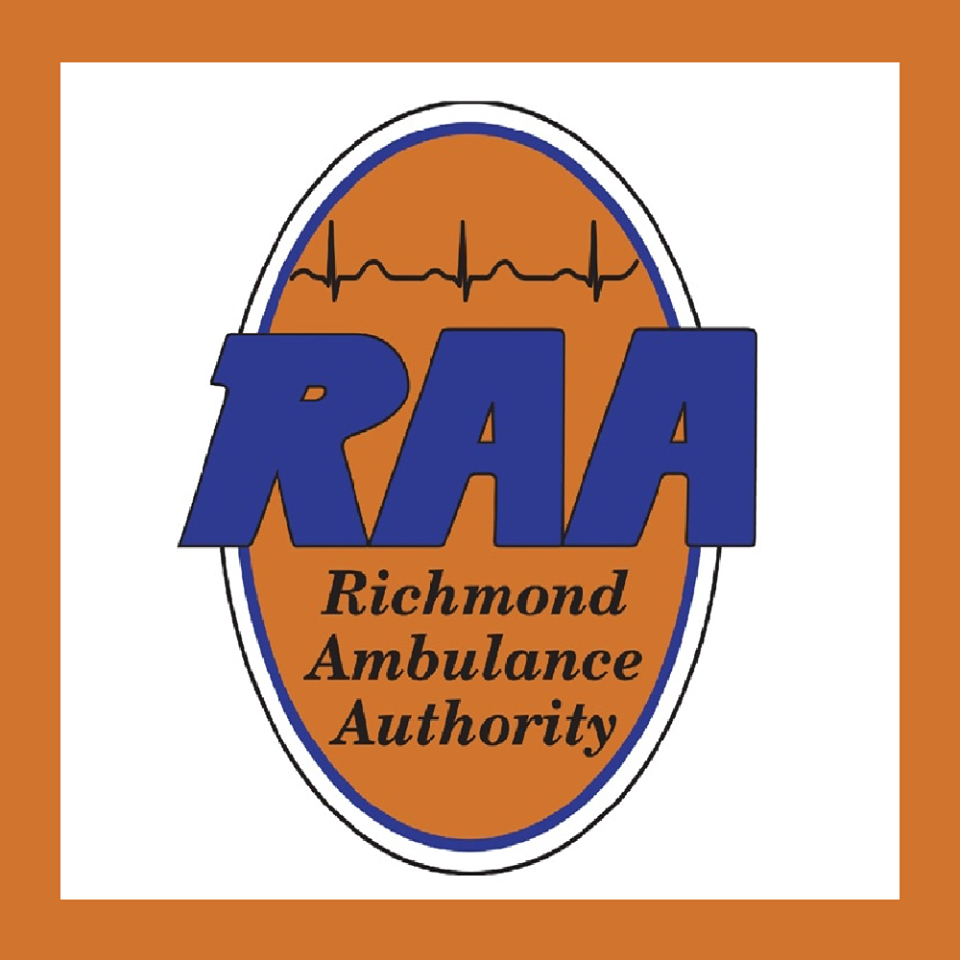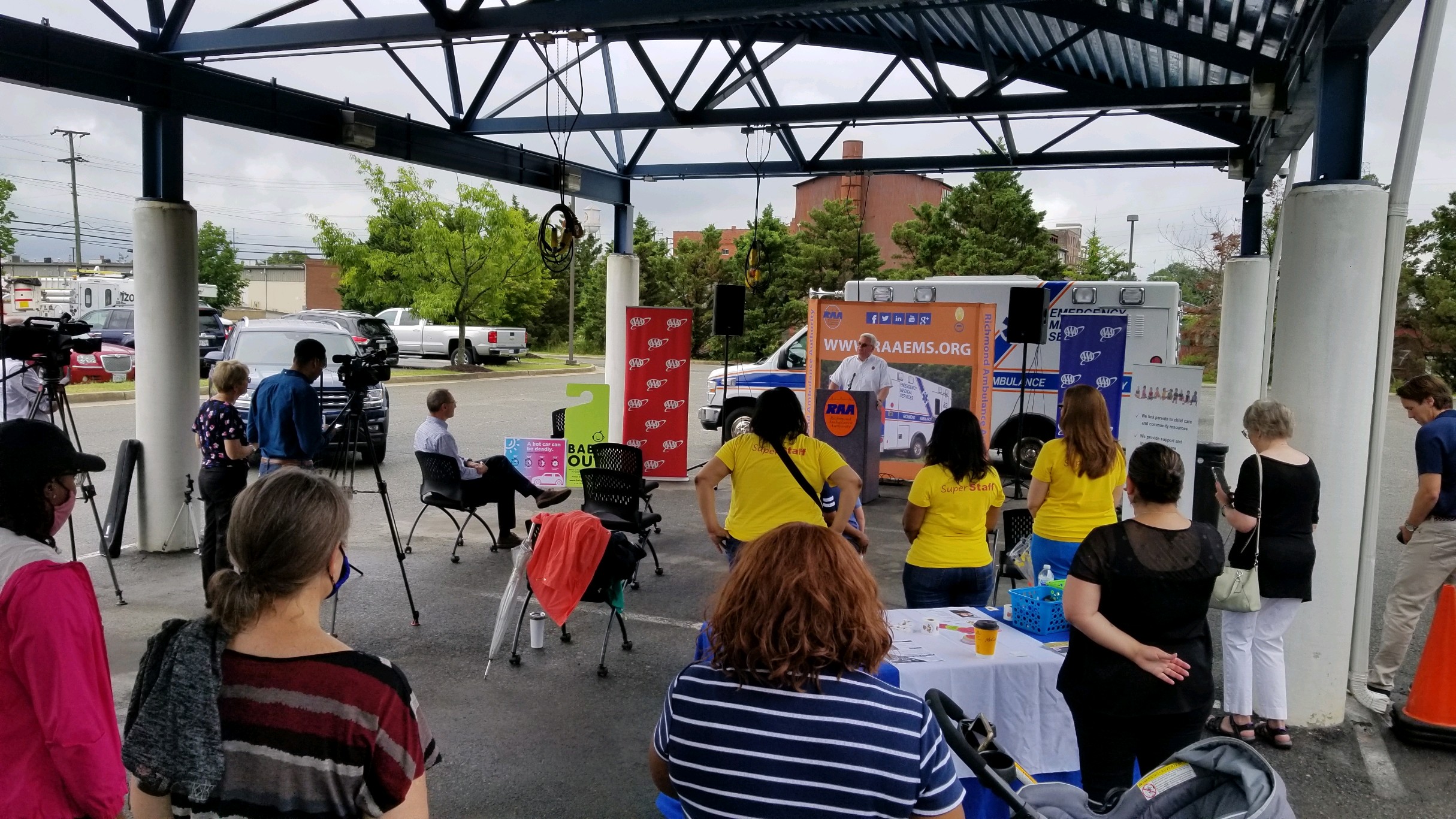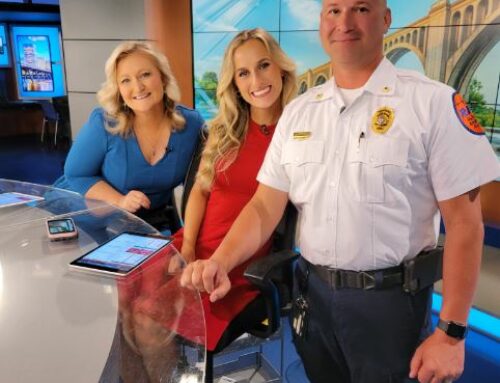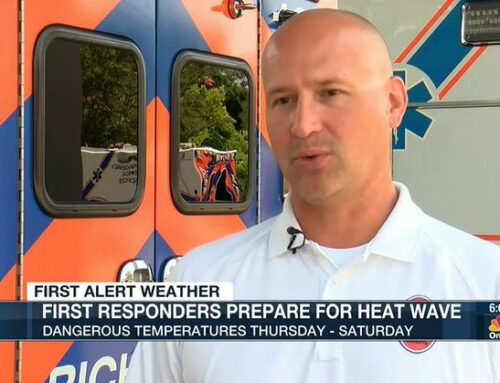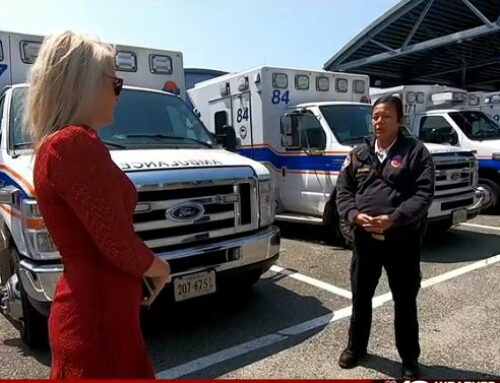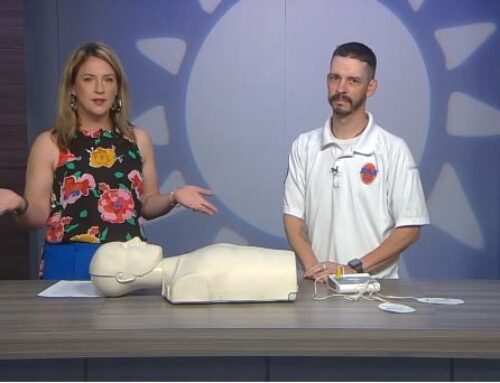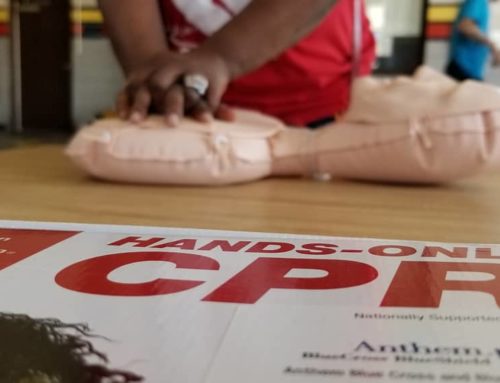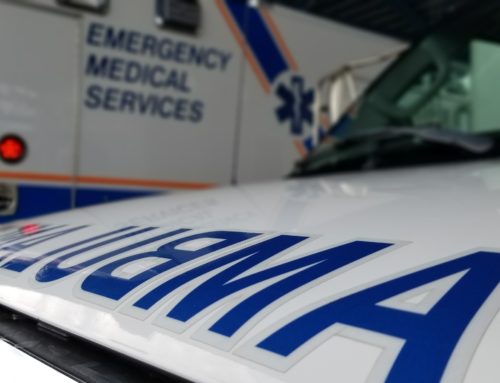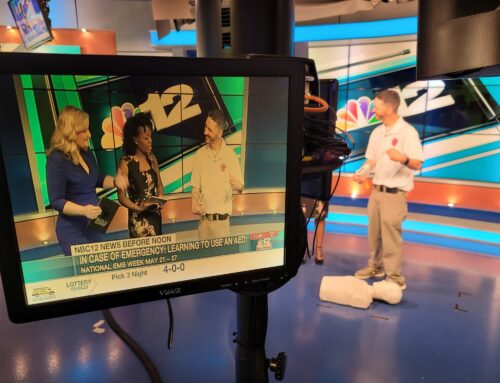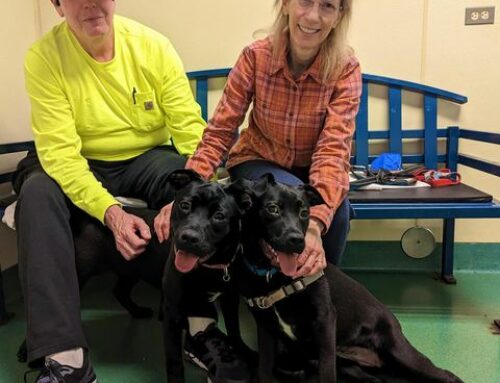The Richmond Ambulance Authority along with AAA Mid-Atlantic, BabyInBabyOut, and Child Care Aware of Virginia held a hot car demonstration with a simulated 9-1-1 call and ambulance response today. Parents were invited to view the simulation as RAA and its partners warned about the dangers of leaving children inside a car for any length of time. As parents and caregivers return to their Pre-COVID-19 routines, it’s more important than ever to take steps to protect children as we head into summer. With the rising daytime temps of the summer comes the risk of children being left behind or getting stuck in a sweltering hot car.
Nearly 1,000 children have died in hot cars in the past three decades. That’s an average of 39 young lives lost each year. Of the 25 children who died inside hot cars in the U.S. in 2020, two were in Virginia.
AAA Mid-Atlantic, Richmond Ambulance Authority, BabyIn BabyOut and Childcare Aware of Virginia are urging parents and others caring for children to check that back seat to make sure they’re not leaving a child behind in a car where they can become a victim of heatstroke or death. Drivers should also be making sure cars parked at home are locked so children can’t get inside of them and become trapped in the heat.
“As outside temperatures rise, the risk of children dying from heatstroke after being left in a hot car increases,” said RAA CEO Chip Decker. “One child dies from heatstroke nearly every 10 days in the United States from being left in a car or crawling into an unlocked vehicle. In almost every case the deaths could have been prevented.”
Hot Car Dangers Facts(NHTSA):
- A car can heat up by 20 degrees in as little as 10 minutes and become deadly.
- A child’s body temperature can rise up to five times faster than an adult’s, and heatstroke can occur in outside temperatures as low as 57 degrees.
- Even with windows cracked, the temperature inside a car can reach 125 degrees in minutes. A child can die when their body temperature reaches 107 degrees.
- A child’s body overheats 3-5 times faster than an adult body.
- 88% of children who have died in a hot car are three or younger.
2018 and 2019 are the two worst years in history for child hot car deaths with 54 and 53 fatalities respectively. Five of those deaths were in Virginia with four of them happening in the Richmond Metro Area.(2 in Chesterfield, 1 in Richmond, 1 in Goochland.) Fewer cars on the road and fewer miles driven by parents and caregivers last year meant a 53% drop (53 in 2019 compared to 25 last year) in hot car deaths involving children. But with cars sitting idle as many adults worked from home, the percentage of hot car deaths related to children gaining access on their own jumped from 13% in 2019 to 36% in 2020.(Kidsandcars.org)
According to KidsandCars.org, in over half of hot car deaths, the adult responsible for the child’s death unknowingly left them in the vehicle. Parents don’t intend to leave a child in a hot car, it often happens during changes in routine like we saw last year at the height of the pandemic and into this year as schedules begin to get back to normal.
“Stress, lack of sleep, fatigue and a change in daily routine can happen to the most well-meaning and responsible parents,” said Morgan Dean, AAA Mid-Atlantic spokesperson. “Changes in routines often trigger situations that lead to heatstroke deaths. So, especially as temperatures rise, we urge parents to take specific precautions to prevent child heatstroke in vehicles. Simple, but consistent steps can prevent the unimaginable grief of the loss of a child.”
Doing these three important things can help prevent a hot car tragedy:
- NEVER leave a child in a vehicle unattended.
- Make it a habit to look in the back seat EVERY time you exit the car.
- ALWAYS lock the car and put the keys out of reach.
If you are a bystander and see a child in a hot vehicle:
- Make sure the child is okay and responsive. If not, call 911 immediately.
- If the child appears to be okay, attempt to locate the parents or have the facility’s security or management page the car owner over the PA system.
- If there is someone with you, one person should actively search for the parent while the other waits at the car.
- If the child is not responsive or appears to be in distress, attempt to get into the car to assist the child—even if that means breaking a window—Virginia has a “Good Samaritan” law (§ 8.01-225) that protects people from lawsuits when getting involved to help a person in an emergency.
Making a Difference:
Richmond’s own Hannah Rhudy was just 12 years old when she launched a life-saving program to keep children safe from pediatric vehicular stroke. She started BabyIn BabyOut, offering free brightly colored rear-view mirror hangtags to parents to help remind them that a little one is in the backseat. When putting a child in the car, the driver displays the “Baby In” side of the card. When getting out, the driver flips it to the “Baby Out” side. Hannah’s non-profit has distributed more than 50,000 cards.
Child Care Aware of Virginia works statewide to improve the accessibility, availability and quality of child care in Virginia. They offer referral and consumer services to families as well as professional development and business support services to child care and early childhood professionals. The organization offers health and safety training and information, including a campaign on car safety for parents and child care providers who offer transportation services, which highlights the dangers of leaving a child in a hot car as well as improper car seat usage.
About the Richmond Ambulance Authority: In 1991, the Richmond City Council and the City Manager implemented an Emergency Medical Services (EMS) system that placed the patient first and guaranteed its performance to the City’s residents. Today, the Richmond Ambulance Authority responds to more than 150 calls per day and transports, on average, 120 patients per day. RAA’s emergency response times are among the fastest in the nation with ambulances on the scene of life threatening emergencies 8 minutes and 59 seconds or less approximately 90% of the time. RAA is one of only 32 EMS agencies in the United States accredited by both the Commission on the Accreditation of Ambulance Services and the National Academies of Emergency Dispatch. RAA is a Commonwealth of Virginia Accredited Dispatch Center.
AAA provides automotive, travel, and insurance services to more than 62 million members nationwide and more than one million members in Virginia. AAA advocates for the safety and mobility of its members and has been committed to outstanding road service for more than 100 years. AAA is a non-stock, membership corporation working on behalf of motorists, who can map a route, access a COVID travel restriction map, find local gas prices and electric vehicle charging stations, discover discounts, book a hotel, and track their roadside assistance service with the AAA Mobile app (AAA.com/mobile) for iPhone, iPad and Android. For more information on joining or renewing a Membership, visit www.AAA.com.
